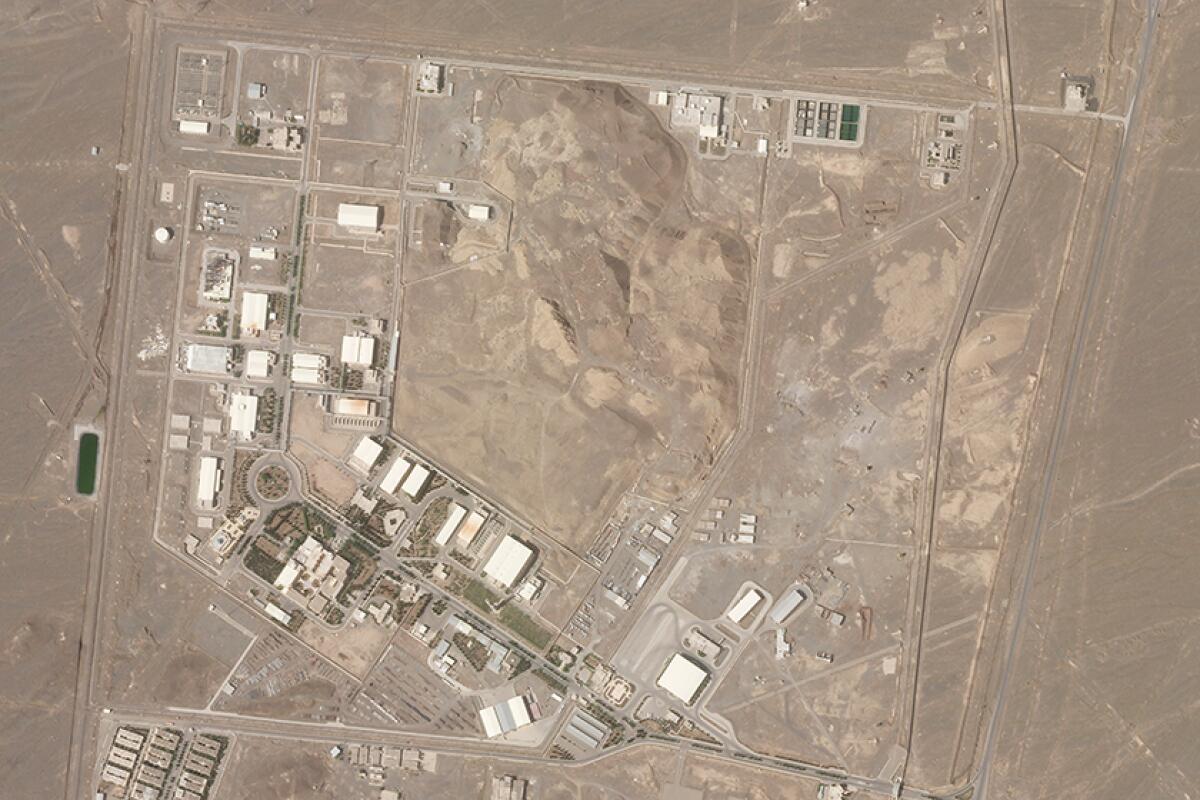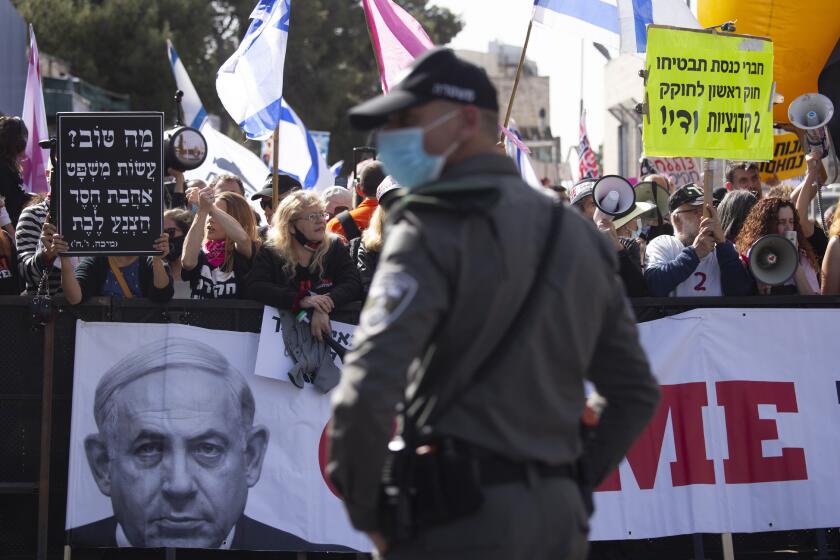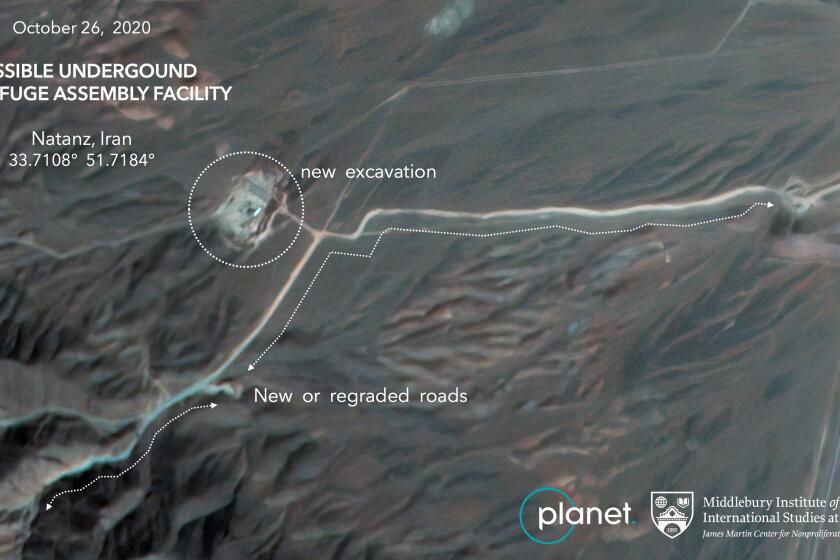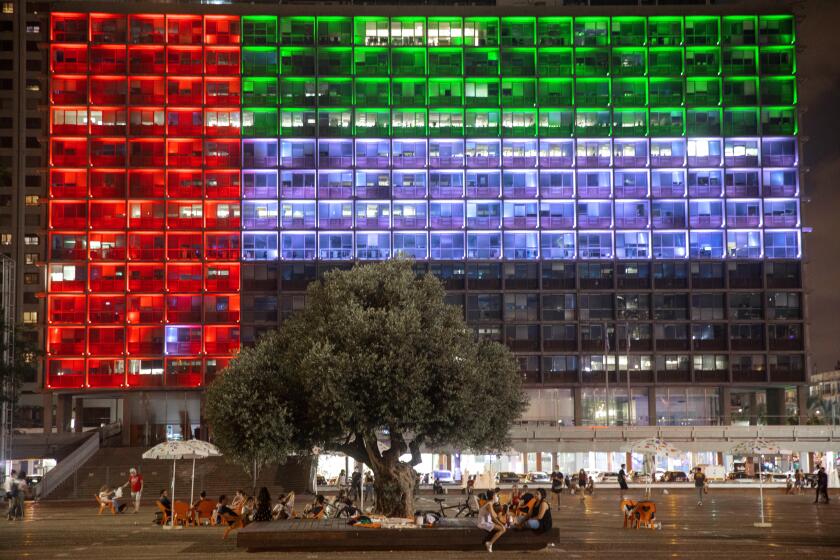What’s ahead for Iran and Israel after alleged attack at key nuclear site?

TEHRAN — Israel and Iran have been here before.
Theirs is one of the region’s longest-running conflicts, a decades-old struggle that is often waged in the shadows but occasionally bursts into full view. Iran on Monday accused Israel of sabotaging a crucial nuclear site over the weekend, vowing vengeance; Israel in turn denounced Iran’s “aggression and terrorism.”
The episode at the Natanz underground enrichment plant is an apparent continuation of hostilities, overt and covert, which at times have threatened to spiral into a broader confrontation with repercussions beyond the Middle East. The standoff comes at a delicate diplomatic moment, as the Biden administration is attempting to reengage with Iran over its nuclear program and perhaps revive the landmark 2015 deal that was abandoned by former President Trump.
Rhetoric unleashed by Iran and Israel on Monday fits into a familiar pattern: Each makes plain that it regards the other as an implacable foe that can neither be reasoned with nor trusted. Both countries have substantial motives for moving to either escalate or calm the situation, and each country’s government is keenly aware of how its own domestic political fortunes could be affected by the way the incident plays out.
Here is some background about the current Israel-Iran flare-up and where it might lead.
Israel’s president asks Prime Minister Benjamin Netanyahu to try to cobble together a governing coalition after last month’s inconclusive election.
What exactly happened?
Details were still filtering out, but what was initially reported as a power failure at the site early Sunday was subsequently revealed to have set off a complex and destructive sequence of events. Iran said no nuclear contamination had occurred, but Iranian officials began referring to the large-scale blackout as sabotage, acknowledging the outage had caused an explosion that damaged the on-site electrical grid, a control room and some of the plant’s older centrifuges.
The timing was significant, coming only hours after Iran had restarted advanced centrifuges that could hasten the production of enriched uranium, an essential component for both nuclear power generation and nuclear weapons, which Iran denies it is pursuing. It was the second such occurrence in the last year at the Natanz facility; in July, a mysterious fire broke out at the site. The Tehran government also blamed Israel for that incident.
President Biden’s dilemma on the Iran nuclear deal: Go slow and risk war, or move fast even if it means an imperfect pact that hurts his domestic agenda.
What has Iran’s response been?
Fiery — although Iranian officials have sought to simultaneously depict the episode as a serious attack and defiantly deny that it will cause any delays in uranium enrichment.
On Monday, Foreign Minister Mohammad Javad Zarif explicitly cast blame on Israel. “The Zionists want to take revenge because of our progress on the way to lifting sanctions,” he said, according to Iranian state media. “But we will take our revenge against the Zionists.”
Both Zarif and Ali Akbar Salehi, who heads the Atomic Energy Organization of Iran, described the episode as “nuclear terrorism.”
Start your day right
Sign up for Essential California for the L.A. Times biggest news, features and recommendations in your inbox six days a week.
You may occasionally receive promotional content from the Los Angeles Times.
What has Israel said?
As a general rule, Israel does not publicly discuss operations carried out by elite military units or its Mossad spy agency. In November, Israel was widely suspected in the ambush-style killing outside Tehran of Mohsen Fakhrizadeh, a senior Iranian nuclear scientist, but neither confirmed nor denied responsibility.
But in an unusual move, Israeli authorities did not impose censorship restrictions on coverage of the Natanz incident, and the Israeli public broadcaster Kan described the blackout as a cyberattack in which the Mossad played a pivotal role.
Israel considers Iran an existential threat, and Prime Minister Benjamin Netanyahu, a vehement critic of the nuclear accord between Iran and world powers, repeated Monday that Israel would not allow Iran to obtain nuclear weapons.
The prime minister did not respond to the Iranian accusation that Israel was behind the Natanz episode, but called the Tehran government a “fanatical regime.”
“Israel will continue to defend itself against Iran’s aggression and terrorism,” he said.
Iran’s powerful Revolutionary Guard has vowed that there will be dangerous consequences for the United Arab Emirates after it announced a historic deal with Israel to open up full diplomatic relations.
What is the U.S. stance?
In Washington, White House Press Secretary Jen Psaki said Monday that the United States “was not involved in any manner” in the Natanz episode. “We have nothing to add on speculation about the causes or impacts,” she said.
By apparent awkward coincidence, Defense Secretary Lloyd J. Austin III was in Israel for talks when the Natanz news broke. Speaking to reporters alongside Netanyahu on Monday, Austin did not specifically mention Iran or the alleged attack, but affirmed the U.S. administration’s support for Israel’s security.
Austin also made no public mention of the rift between Netanyahu and President Biden over U.S. efforts to revive the Iran nuclear deal, instead expressing hopes that the two countries could work together toward “enduring peace in this region.” Netanyahu has said Israel would not consider itself bound by any revived version of the nuclear accord.
Prior to the 2015 accord, the United States and Israel are believed to have cooperated in seeking to quell the Iranian nuclear threat. In 2010, the Stuxnet computer virus, reportedly developed in a secret joint effort, was employed in an cyberattack against the Natanz facility.
Psaki said the United States expected diplomatic discussions in Vienna over restarting talks on the nuclear pact to proceed as planned this week, but suggested no breakthroughs were expected.
“We expect them to be difficult and long,” she said of the talks.
How is the episode playing politically in Israel and Iran?
Netanyahu is currently on trial for corruption, and after inconclusive general elections last month, he has been struggling to form a new coalition government. Some Israeli commentators have noted that a tough stance against Iran is always popular with Netanyahu’s base, and could potentially give political cover to reluctant coalition partners.
In Iran, the incident sharpened battle lines between moderates, who support a return to nuclear talks, and hard-liners, who adamantly oppose them.
The reformist politician Ahmad Zeidabadi was quoted by Iranian news website Fararu as saying the incident signaled the start of a “perilous game” between Iran and Israel, and that the U.S. administration would play a crucial role in determining “its acceleration or slowdown.”
Abdullah Ganji, editor of the hard-line Javan Daily, voiced suspicions on Twitter that the alleged attack amounted to “division of labor” between Israel and the United States.
“If I were a decision-maker in the country, I would immediately order halting the Vienna talks!” he tweeted.
Special correspondent Khazani reported from Tehran and Times staff writer King from Washington.
More to Read
Sign up for Essential California
The most important California stories and recommendations in your inbox every morning.
You may occasionally receive promotional content from the Los Angeles Times.













